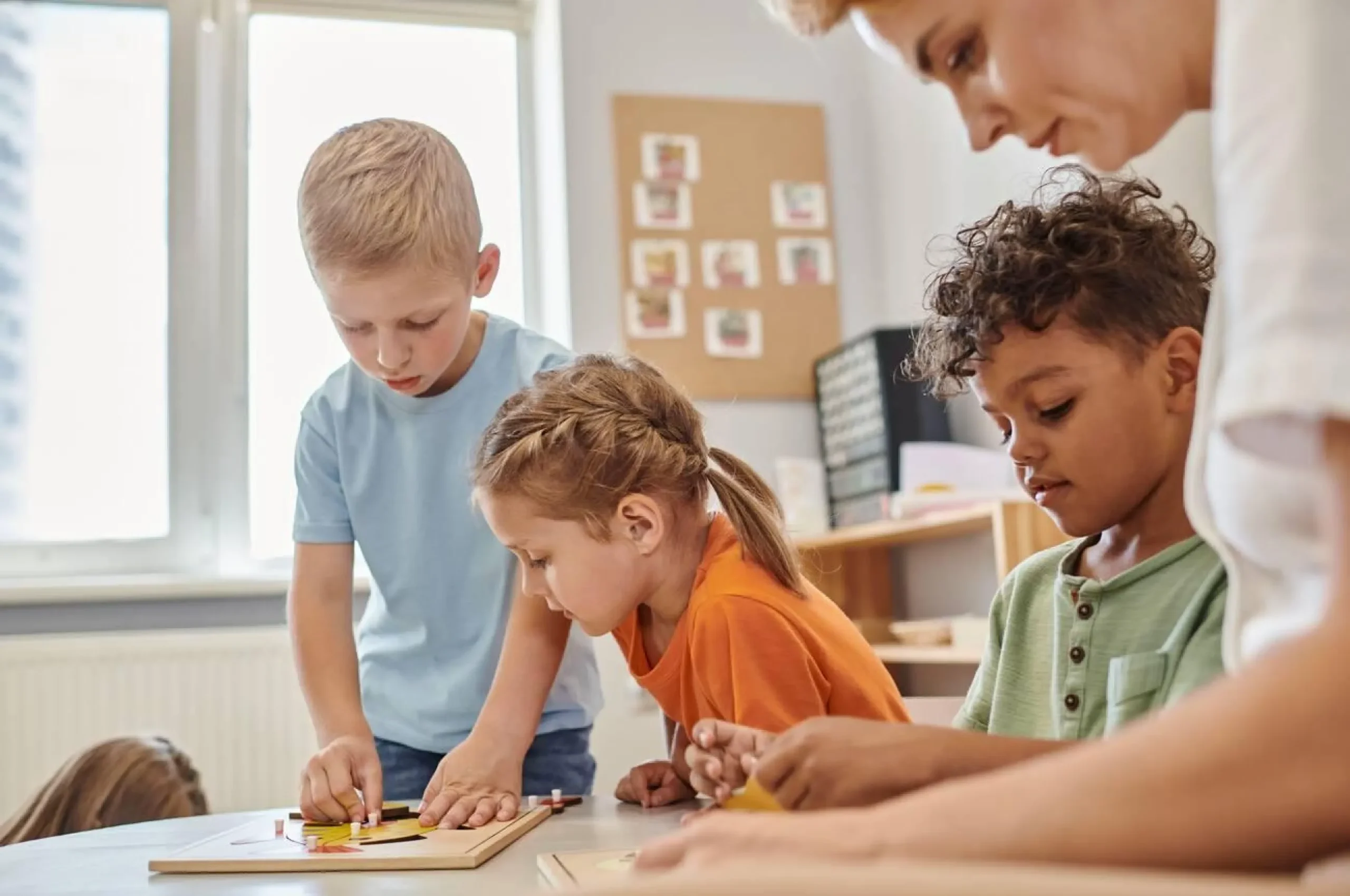Raising a child is a beautiful, messy, and sometimes bewildering journey. As we navigate the endless stream of advice and educational philosophies, a name that frequently arises is Maria Montessori. Her revolutionary approach, Montessori education, extends far beyond classrooms, offering a unique lens for parenting at home. But what exactly is Montessori parenting, and should it be the compass guiding your family’s journey?
Table of Contents
Understanding the Montessori Parenting Philosophy
Montessori parenting isn’t a set of rigid rules; it’s a philosophy. Based on Dr. Montessori’s observations of children, it emphasizes:
- Respect for the child: Children are seen as capable and competent individuals with unique needs and developmental stages.
- Freedom within limits: Children are given the freedom to explore, make choices, and learn at their own pace, within boundaries that ensure safety and respect.
- Prepared environment: The home environment is carefully curated to stimulate and support the child’s development, with accessible materials and designated areas for various activities.
- Intrinsic motivation: Learning is self-directed and driven by the child’s natural curiosity, fostering a love of discovery.
- Observation and guidance: Parents act as guides, observing the child’s interests and offering support when needed, without interrupting their exploration.
This philosophy translates into parenting practices that nurture:
- Independence: Children learn to dress themselves, prepare snacks, and contribute to household chores, building confidence and self-reliance.
- Concentration: Engaging activities and a clutter-free environment help children focus and develop the ability to work through tasks uninterrupted.
- Critical thinking: Open-ended activities and problem-solving opportunities encourage children to think creatively and find solutions independently.
- Emotional intelligence: Respectful communication, empathy, and collaboration are fostered through daily interactions and conflict resolution.
Montessori Parenting: Pros and Cons
| Pros | Cons |
|---|---|
| Focuses on child-led learning: Encourages children to explore their interests at their own pace, fostering curiosity and intrinsic motivation. | Requires commitment and effort: Parents need to set up the environment, observe their child’s needs, and provide guidance. |
| Develops independence and self-confidence: Children learn to problem-solve, make choices, and complete tasks on their own, boosting their self-esteem. | Can be expensive: Montessori schools and materials can be costly, and implementing the philosophy at home requires investment. |
| Promotes concentration and focus: Uncluttered environments and engaging materials help children become deeply absorbed in their activities. | May not be suitable for all children: Some children thrive in structured environments with direct instruction. |
| Nurtures self-discipline and respect: Clear expectations and natural consequences teach children responsibility and respect for themselves and others. | Can be challenging to implement in traditional homes: Requires adapting spaces and activities to align with Montessori principles. |
| Emphasizes hands-on learning: Children learn through concrete experiences, leading to deeper understanding and better retention. | Can be messy: Open-ended activities often involve materials that can create clutter. |
| Encourages social-emotional development: Children learn cooperation, conflict resolution, and empathy through collaborative play and activities. | May face criticism from others: Traditional parenting approaches may not understand the philosophy, leading to judgment. |
| Holistic approach to development: Addresses physical, cognitive, emotional, and social needs to cultivate well-rounded individuals. | Requires parental education: Parents need to learn about the philosophy and its implementation to be effective. |
Best Montessori Parenting Books: Resources for Deepening Your Understanding
Want to delve deeper into Montessori parenting? Here are some recommended resources:
- “The Montessori Toddler” by Simone Davies
- “The Montessori Baby” by Simone Davies
- “How to Talk So Kids Will Listen & Listen So Kids Will Talk” by Adele Faber & Elaine Mazlish
- “The Absorbent Mind” by Maria Montessori
Remember, Montessori parenting is a journey, not a destination. There will be stumbles and challenges, moments of frustration and days when the carefully curated environment feels like chaos. But with patience, dedication, and an open heart, you can harness the magic of this philosophy to nurture your child’s innate potential and create a home filled with wonder, respect, and lifelong learning.
Conclusion
Choosing a parenting approach is a deeply personal decision. Take time to explore different philosophies, listen to your instincts, and find what resonates with your family. If Montessori sparks your curiosity, embrace the journey, celebrate the small victories, and witness the magic unfold as your child blossoms into a confident, independent, and lifelong learner. The world awaits their unique light, and with the guiding principles of Montessori parenting, you can empower them to shine brightly.
